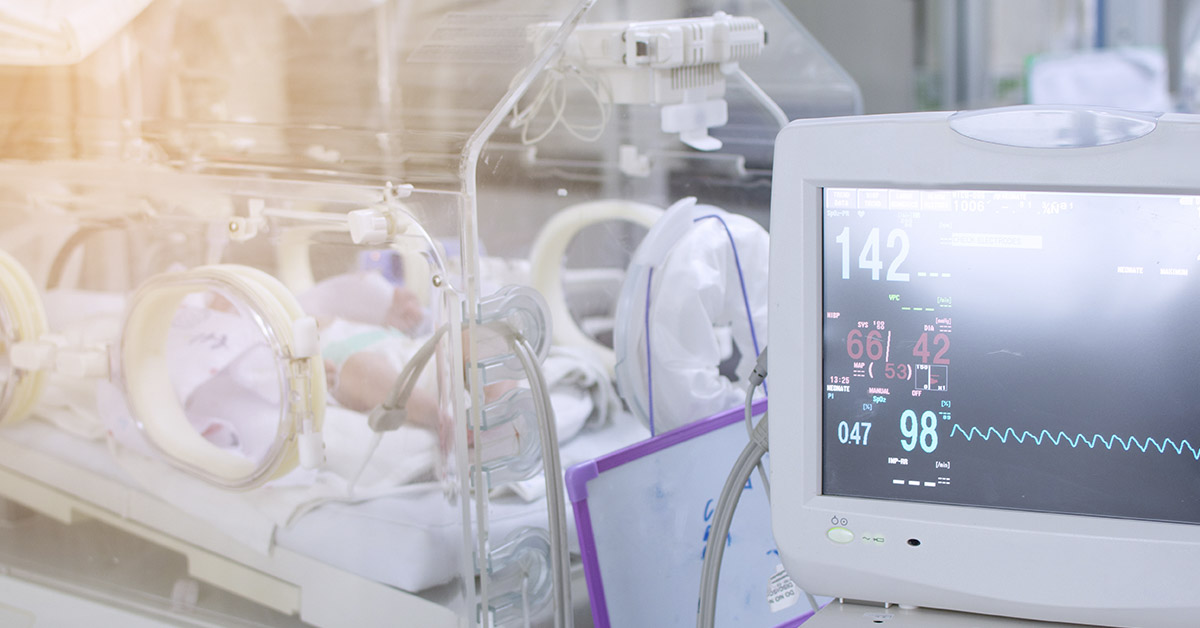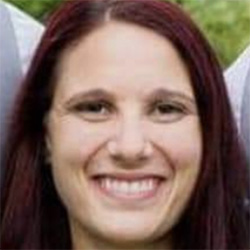Christina Fisher experienced a blessing in disguise that would change her whole life for the better. Due to unexpected circumstances, she put her baby up for adoption. Everything was set and she had arranged for adoptive parents to raise the child in Georgia. However, when her baby was born with a rare condition called, Treacher Collins Syndrome, the adoptive parents left without a word.
Making a Difficult Choice
Christina Fisher was 36 years old and living in Florida when she found out she was pregnant. Right off the bat, she had a tough decision to make. She had already raised a child and wasn’t in a position to do it again. Although Christina was unaware that baby Abigail would have Treacher Collins Syndrome, she still wasn’t in a position to provide the best life possible for her baby. At the time, she was without a job and living in an RV park. Unfortunately, toward the end of the pregnancy the park closed down and Christina essentially found herself “homeless“.
Still Unaware of Treacher Collins Syndrome
Christina wasn’t in a relationship with the baby’s father, nor did she have family nearby. Her family were all living in Louisiana, along with Christina’s 18-year-old daughter Debra. It was an emotional process but ultimately, moms and dads just want what’s best for their children. Given where Christina was at that phase of her life, she felt these new potential parents would be able to better provide for her baby. As a result, she made the heartbreaking decision to put the baby up for adoption.
During her pregnancy, her prenatal tests were as expected. Additionally, the ultrasounds never showed any abnormalities, so she didn’t know the baby had Treacher Collins Syndrome. “Nothing was detected, they just told me her ears looked a little small,” she said. Christina also explained that throughout her pregnancy, the adoptive parents were very supportive. However, after baby Abigail was born and the family learned of the condition, they disappeared.
Learning of Abigail’s Condition
Christina shared that her final days of pregnancy came with some hardships, and she was admitted to the hospital on Jan. 6th. Then, 5 days before baby Abigail Lynn was born. They went to Sacred Heart Hospital where she was diagnosed with preeclampsia. A condition that results from a rapid increase of blood pressure or organ damage.
The adoptive parents were called and arrived a day after Christina was admitted. At the time no one knew the baby had Treacher Collins Syndrome. On Jan. 11th, baby Abigail made her way into the world. “I let her (adoptive mom) take the other wristband into the NICU. She came out crying, looked at Debra and left the hospital. We never heard from them again.” Christina said of the moments after Abigail’s birth.
What is Treacher Collins Syndrome
Baby Abigail was diagnosed with Treacher Collins Syndrome. Although rare, the condition has a negative impact on bone and facial tissue development. Because Treacher Collins Syndrome causes underdeveloped facial bones, those with the condition typically have a smaller jaw, chin, and cheek bones. Other outcomes may be cleft palate, loss of hearing, and possible eye abnormalities. Luckily, the condition is fairly rare and affects less than 50,000 babies annually.
Treacher Collins Syndrome is caused by a viral variant that affects the genes. Subsequently, at least 1, if not more, genes won’t work properly. Because the condition has no impact on the brain, Abigail should have a regular childhood and reach all her milestones at the correct time. “There’s doctors with Treacher Collins, even a male model,” Christina said. “She may need reconstructive surgery, but she’ll be able to lead a perfectly normal life.”
Endlessly, Loving Her Baby
Nonetheless, Christina thought Abigail was perfect and immediately fell in love. She wholeheartedly cherished the baby and decided everything worked out just way it was supposed to. “I took it as a sign that she was supposed to be mine. And now, she is my heart …” Christina said of her change in plans. “Without her I would cease to exist.”
Within a few months, Christina realized she had support coming from several resources. Debra started a GoFundMe page that raised $20,000 to help Christina get things on track. She was sharing an apartment with a friend who would also watch Abigail while she went to work. And a number of friends were available to give her rides to Abigail’s appointments. “I’ve been very fortunate,” she said. “I don’t need a glamorous lifestyle. I just need enough to take care of her.”
A Happy Ending
Having Treacher Collins Syndrome hasn’t had a negative impact on Abigail’s spirit. She was a very happy baby, who enjoyed taking baths. When asked if Christina planned to ever tell her daughter about the almost adoption she swiftly said no, “That kind of rejection from someone so shallow … she doesn’t need to know about it.” Despite things going differently than she planned, Christina is grateful for the unexpected blessing. “She saves my life every single day, just like my 18-year-old did,” she said. “She doesn’t know how much she means to me … she’ll understand one day.” Christina said.
Furthermore, the adoption agency was “appalled” by the news and Christina explained the family’s file was “flagged” which likely means if they choose to go through the process again, they’ll either be ineligible or have a much more difficult time in the future.
Sources:
Sources
- “Biological mom keeps baby born with birth defects when adoptive mom flees.” ABC13 Houston. Crystal Isaac. June 2, 2016.
- “Adoptive mom flees in tears upon seeing newborn’s birth defects; biological mom decides to keep her ‘little angel’.” The Northwest Florida Daily News. Jennie McKeon. April 13, 2016.
- “Woman gives birth to a baby daughter with rare condition and is puzzled when adoptive family won’t take her.” Bored Daddy. Monica P. Retrieved December 7, 2022.
- “Treacher Collins Syndrome.” NORD (National Organization for Rare Disorders). Retrieved December 7, 2022.

